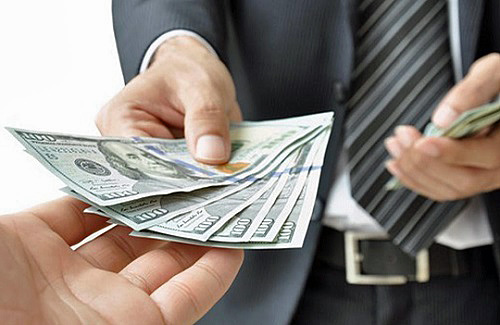…four words that no one likes to hear, especially when that ‘Amount Due’ is $32.65 million.
This is the amount the Los Angeles Dodgers owe Major League Baseball in tax penalty fees for exceeding the luxury tax threshold during the 2021 season. They, along with the San Diego Padres (who only owe $1.29 million), were the only two teams in MLB to exceed the prorated luxury tax threshold as follows:
- 20% on every dollar between $210 million $230 million for first-time payors
- 32% on overages between $230 million and $250 million

(Getty Images)
Neither team exceeded the luxury tax threshold in 2020.
Under the terms of the just-expired 2016-21 MLB/MLB Players Association collective bargaining agreement (CBA), teams were only subject to escalating penalties for exceeding the threshold in consecutive years. Thus, both teams will be treated as first-time payors this offseason.
By exceeding $250 million, the Dodgers will also take a hit in the 2022 amateur draft. Teams that exceeded the highest tax threshold under the 2016-21 CBA lose ten spots in the ensuing MLB Rule-4 First-Year Player Draft. As such, instead of having the 30th overall pick in 2022, the Dodgers first selection will be 40th.
According to Associated Press, the Phillies, Yankees, Mets, Red Sox, and Astros ended the 2021 season with payrolls less than $5 million below the first tax threshold. As such, they now become first-time payors in 2022. The Yankees and Astros reset their tax thresholds after exceeding it in 2020. (The Cubs also exceeded the threshold in 2020 but didn’t come close to it in 2021).
AP also reported that overall spending on players took a step back. The combined tally of all thirty teams’ luxury tax payrolls in 2021 came to $4.52 billion, down from the (pre-pandemic) $4.71 billion teams spent in 2019. This is not surprising with essentially zero gate revenues in 2020 and was the lowest overall expenditure on players since 2016 when it totaled $4.51 billion.
As noted, the just-expired CBA included escalating penalties is for teams exceeding the threshold in multiple consecutive years. It is unclear whether this practice will continue with the next CBA – if/when that happens, with the current MLB lockout about to enter its second month. But most so-called ‘high-revenue teams’ historically have dipped back under the threshold to “reset” their tax bracket to avoid future escalating penalties.
Stay tuned…
* * * *
(Source: Anthony Franco – MLB Trade Rumors)
* * * * * *




 December 22nd, 2021 at 9:00 am
December 22nd, 2021 at 9:00 am  by Ron Cervenka
by Ron Cervenka  Posted in
Posted in 
